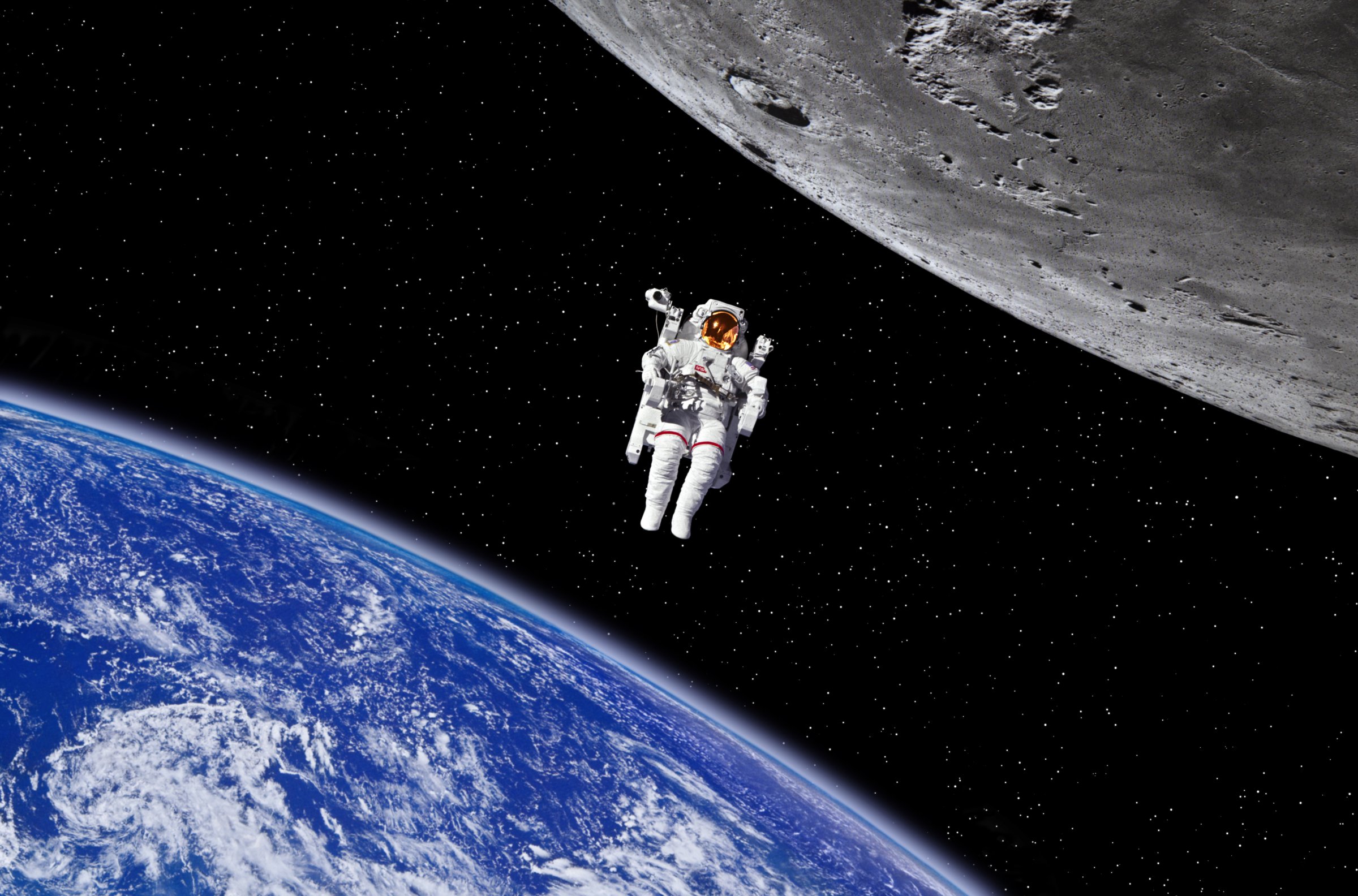
Space is hot in Hollywood. The number of movies set in space, either in Galaxies far, far away or closer to home on Mars or the moon seems to have increased exponentially in the last few years. TV procedurals feature stories of the week involving astronauts, and you cannot watch an evening of TV without seeing at least one commercial showing a night view of the earth shot from space. All of which seems unusual to me since in reality, the drive for human spaceflight in the U.S. seems to be lost.
So as I was trolling the news the other day, looking for a non-political story in an attempt to minimize my chest pain, I stumbled onto this article from last year: “Reese Witherspoon Playing A PTSD Astronaut In Pale Blue Dot.” Really? I thought, and continued to read: “The major theme of the story, which will be portrayed through the fraying of her seemingly idyllic life, is to explore a longstanding idea that says astronauts begin to lose their grip on reality after being in space for an extended period of time.”
Wait, I thought. What? A longstanding idea that astronauts lose their grip on reality after being in space for an extended period of time? After 27 years in the Astronaut Office and five flights to space, how did I not know this?
A lot of people probably think that our willingness, desire and even joy to sit on seven million pounds of explosive rocket fuel indicates some basic faulty mental wiring. And doing it more than once? Every astronaut who has been to space will struggle with the description of the emotional, psychological and visceral feeling of being off the planet. Most, at some point, use words like “awesome,” “indescribable,” “spiritual,” “insignificant” and “humbling.” But unhinged? That was news to me. And to the NASA flight docs I asked about this.
According to the National Institute of Mental Health, Post-Traumatic Stress Disorder “develops in some people who have experienced a shocking, scary, or dangerous event.” And sure, flying in space may seem like all of that, but not to us. The kinds of experiences that usually trigger PTSD are more like surviving dangerous events, getting hurt, witnessing others being hurt and childhood traumas. Hollywood may consider spaceflight traumatic (the crazy astronaut with “space dementia” in the movie Armageddon — worst space movie ever — is one of my all-time favorite unrealistic space characters), and certainly our mothers do, but astronauts do not.
We understand the danger involved in human spaceflight, and we accept the risk because we feel the reward of human space exploration is worth taking that risk. We experience sustained periods (years, when you consider the training leading up to a spaceflight) of a high-pressure workload, but the experience overall is one of a mental high. This can occasionally lead to a sort of depression when it all comes to an end and you’re back on earth, but not the kind of downward personal spiral intimated by the movie’s synopsis.
In fact, the field of space psychology is well developed after more than 50 years, and the notion of being detached from reality is simply not there. There is evidence that shows the exact opposite. Traveling in space, the data shows, can be a positive experience for participants, giving them a greater appreciation for people, nature and our tiny place in the universe.
The article about the movie suggested that “for arguably the first time, audiences will get to see what happens to female astronauts once they are back at home and resume their normal lives.” It made me wonder: Were women returning from spaceflights supposed to be different in some way from men returning from similar spaceflights? Another office memo I apparently never read.
Pale Blue Dot is still in development, but if and when filming does begin, I hope the filmmakers will take this into account: Astronauts are, at the end of the day, just regular people, subject to the same personal, family and work-related issues everyone faces. All I can conclude is that perhaps an astronaut who loses his or her grip on reality after spending time in space wasn’t holding on too tightly to begin with.
Marsha Ivins is a retired astronaut. She flew aboard five shuttle missions for a combined 55 days in space.
More Must-Reads From TIME
- The 100 Most Influential People of 2024
- The Revolution of Yulia Navalnaya
- 6 Compliments That Land Every Time
- What's the Deal With the Bitcoin Halving?
- If You're Dating Right Now , You're Brave: Column
- The AI That Could Heal a Divided Internet
- Fallout Is a Brilliant Model for the Future of Video Game Adaptations
- Want Weekly Recs on What to Watch, Read, and More? Sign Up for Worth Your Time
Contact us at letters@time.com